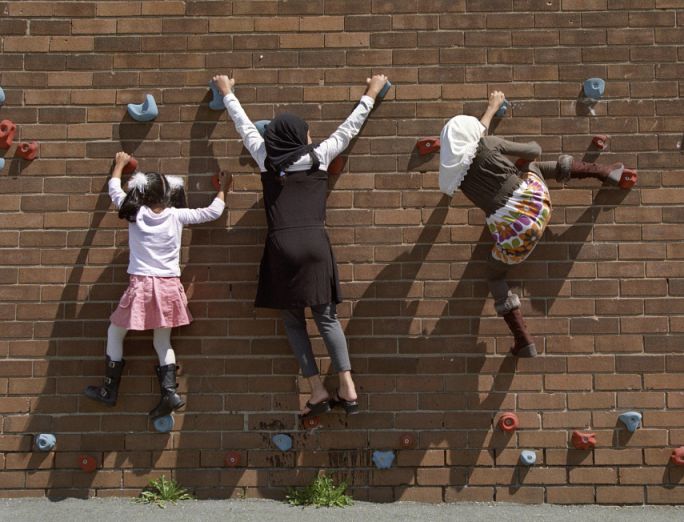Send to a friend
The details you provide on this page will not be used to send unsolicited email, and will not be sold to a 3rd party. See privacy policy.
Girl-centred development campaigns fail to consider girls’ real desires and problems, and portray them both as victims and saviours of the global economy, a research paper says.
“These campaigns do not recognise girls as individuals, each with specific abilities and personal aspirations, but rather assume that all girls want to be educated, raise families and become wage earners,” write Cynthia Caron and Shelby Margolin, two development scholars at Clark University in the United States.
“These campaigns do not recognise girls as individuals, each with specific abilities and personal aspirations.”
Cynthia Caron and Shelby Margolin, Clark University, United States.
In their paper published in the Journal of International Development last month (24 September), Caron and Margolin analyse three campaigns: the NIKE Foundation’s Girl Effect, Plan International’s Because I am a Girl and the Girls Not Brides global partnership against child marriage.
The authors say these programmes support a “development fantasy”, promoting education as a way to “invest in girls” and increase their economic value. The campaigns aim to further economic growth under the guise of girl empowerment, say Caron and Margolin, perpetuating what they see as a “failed development narrative that economic growth inevitably leads to an equitable future for all”.
But Girls Not Brides executive director Lakshmi Sundaram says her programme strives to make the voices of girls and women heard. “We work with a number of activists who have been directly affected by child marriage” and many member organisations include girls in the design, roll-out and monitoring of the projects that seek to help them, she says.
The partnership includes over 500 member organisations against child marriage across the world. Each focuses on its own local context and is not always driven by an “economic growth narrative as this article suggests”, Sundaram tells SciDev.Net.
There is growing academic criticism along the paper’s lines, says Fenella Porter, who coedited the book Aid, NGOs and the realities of women’s lives: a perfect storm.
Empowerment is political and not just economic, Porter says, adding that it requires a connection with the “complicated, messy realities” of people’s lives. For example, education cannot be taken in isolation, she says. “You have to connect with what surrounds a schoolgirl. What happens to her before she goes to school, while she goes to school or at school?”
To improve development campaigns, donors could be more flexible and progressive in how they allocate money, Caron proposes. Some development programmes may restrict their focus to things they can measure, such as the age a girl gets married or the years she spends in school. But measures of success could be more qualitative than quantitative, adds Caron, who spent nine years working in international development and humanitarian assistance in Asia and Africa.
Nikki van der Gaag, who was lead author for six State of the world’s girls reports for the charity Plan International, points out that girls’ campaigns should also talk with boys. For example, encouraging a girl to refuse early marriage without including the men and boys around her in these efforts could put a girl at risk of backlash from her father, uncle or community, she says.Programmes should also consider wider constraints, van der Gaag says. “Who has power and who doesn’t?” she asks. “If girls don’t have much power to make decisions over their own lives, you’re not going to change this if you’re not looking at why that is.”
References
[1] Cynthia M. Caron and Shelby A. Margolin Rescuing girls, investing in girls: a critique of development fantasies (Journal of International Development, 24 September 2015)
[2] Edited By Tina Wallace and others Aid, NGOs and the realities of women’s lives: a perfect storm (Practical Action Publishing, 2013)














